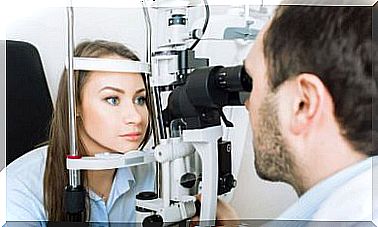How Many Hours Of Television Are Harmful To Health?
The number of hours of television to which it is convenient or acceptable to be exposed varies according to age, although excess is never recommended

Is it possible to imagine daily life without a few hours of television? From the moment they enter the home, for many lonely people television is a kind of company at home. So much so that it can become essential on a day-to-day basis.
On the other hand, for other people, television is a kind of division between their work time and their time of rest or leisure. After a long day away from home, they come home, change their clothes and make themselves comfortable on the sofa for a considerable time. The problem with this is that many times, that exposure time would have been excessive.
On the other hand, there are families who use television to keep children calm and entertained. The problem with this is that many times, the time they spend in front of the device is excessively long.
While it is true that watching television can be very useful in many leisure moments, the truth is that it is not advisable to overexpose yourself, regardless of age. Let’s dive deeper into this idea below.
How many hours of television are suggested by health professionals?
Although it is impossible to give a general figure, doctors and psychologists agree that it depends on the age and living conditions of the people.
However, it is worth keeping in mind that famous proverb that says “everything in excess is harmful.” The same is often recommended by the authors of various studies.

Television and young children
In general, it is stated that children under the age of 2 should not watch television. And those older than that age should not be exposed to more than two hours of television per day.
There are programs considered “educational” that allow the child to see facts and places that they would not otherwise know. However, they also have their negative effects, especially when exposure times are exaggerated. Among them are:
- Sleep disorders. It is common for children to extend their time spent “watching TV” and delay those devoted to sleep. This is especially a problem in homes where children have a television in their bedrooms. The overexcitement that some programs cause interferes with rest and causes sleep disturbances.
- Overly idealized vision of the world that does not correspond to reality. Children’s programs generally present situations where everything is more pleasant and with fewer problems than in their own environment. Thus, as a result of the comparisons, frustrations and disagreements arise that can lead to depressions.
- Physical models of people who appear in the television world that cause low self-esteem and insecurity. The child tends to identify with the characters that people on television embody, generally people who respond to stereotypes of the moment. Then the mirror shows you a completely different image and that can affect you.
What happens when children watch a lot of television?
- School learning problems. Children live with television images in their heads and have a hard time focusing on homework.
- Delayed language development. Many minors have a limited vocabulary made up of words from the country of origin of the program. These concepts have nothing to do with those of your geographical location.
Some children may also exhibit violent behavior. This could be a consequence of overexposure to inappropriate content, among other factors, such as poor socialization and poor (home) education.
On the other hand, sedentary lifestyle is an important risk factor in the development of various health problems, both physical and mental, at any age.
And what about adults?

What happens in adults who live long hours of television? Although it seems that the adult is no longer affected by excess television, in reality it does. Some of these effects are as follows:
- Sleep disorders. As with children, watching television for many hours, especially before sleeping, can impair your rest.
- It generates beliefs that empty the value systems, passivity, lethargy of critical thinking, since everything is reduced to spectacle.
- It makes people believe false needs, and this especially affects those who have limited economic resources, which leads to envy, dissatisfaction, frustration. All aspirations boil down to buying and buying.
- Reduce family times. Although they remain seated in front of the same device, communication is almost nil.
As in all areas of life, excessive hours of television is harmful to people. Therefore, it is necessary to regulate the exposure times and the programming that children consume.
Likewise, it is advisable to sit down with them to reflect together about different situations and programs that are broadcast, since there is a lot of content that works in a similar way to junk food, it seems to satisfy hunger (for entertainment, in this case), but not really feed.









